Psst…This cheat sheet is all about how much you would need for a year supply of vegetables. Wondering about how much to plant for a year’s supply of fruit too? Check out my post HERE!
A few years ago, I set a goal to eat only the veggies from my garden for a whole year. But I had one big problem. I had no idea how many plants we needed to grow for a years worth of food!
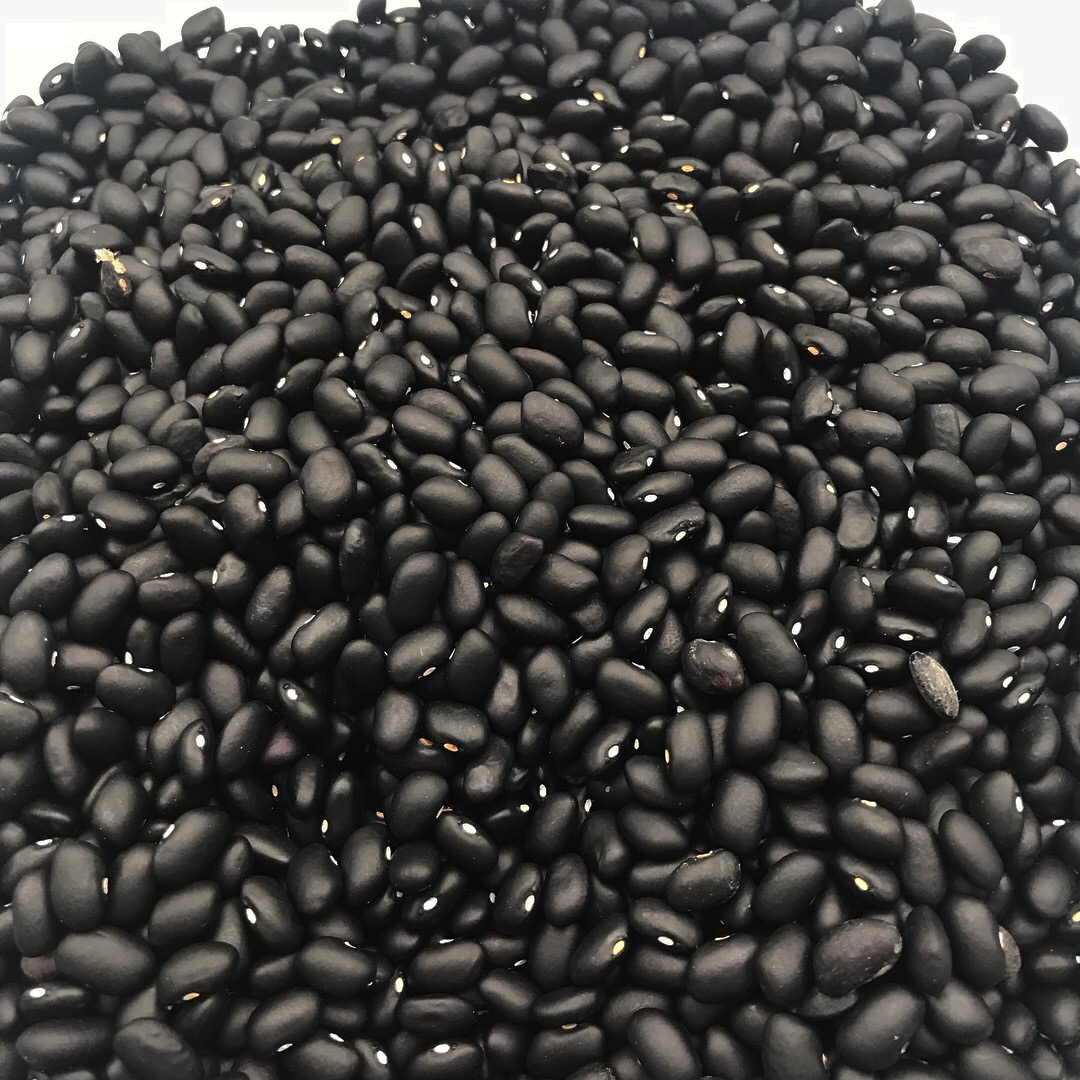
My vegetable garden is 3500 square feet and I was attempting to grow a year supply of food for six people in that space. At the time, I didn’t know of any resources for finding out that information so I started with my best guess, based on what we had grown in years past. The first year, we made it nine months with exclusively homegrown garden produce and we eat a lot of vegetables.
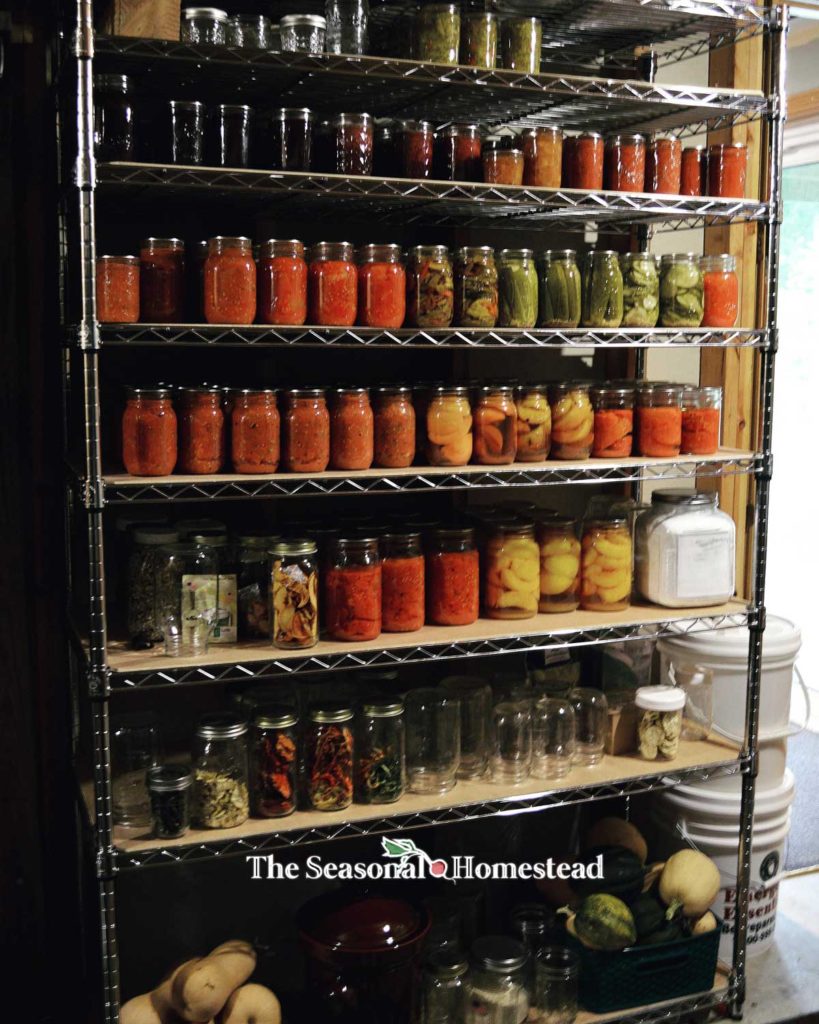
The second year, I was able to get how much to plant more dialed in because I had another year of experience in growing a year’s supply of food under my belt. However, we still came just shy of a year and we made it almost 11 months with eating vegetables grown only from our backyard garden.
To seriously grow all the vegetables you eat for a whole year isn’t easy. This is even more true if you are trying to fit everything in a small garden. As soon as one crop comes out of the ground another one goes in. You need to interplant and grow vertically as much as possible. I have a whole guide of how to maximize your garden space for small gardens HERE.
But it is totally worth it! Believe in yourself. You can do more than you think you can.
I still have plenty of naysayers that don’t believe that going a year’s supply of vegetables is practical or possible, especially because of the size of my garden and how many we are feeding. But we’ve almost made it a whole year and I was able to defy the statistics.
Because of our small garden, we do forgo some space hogging crops like corn in favor of more calorie and nutrient dense crops like sweet potatoes. I grew 20 sweet potato plants last year and harvested 120 pounds of sweet potatoes. In the south, it is a low space high return crop.
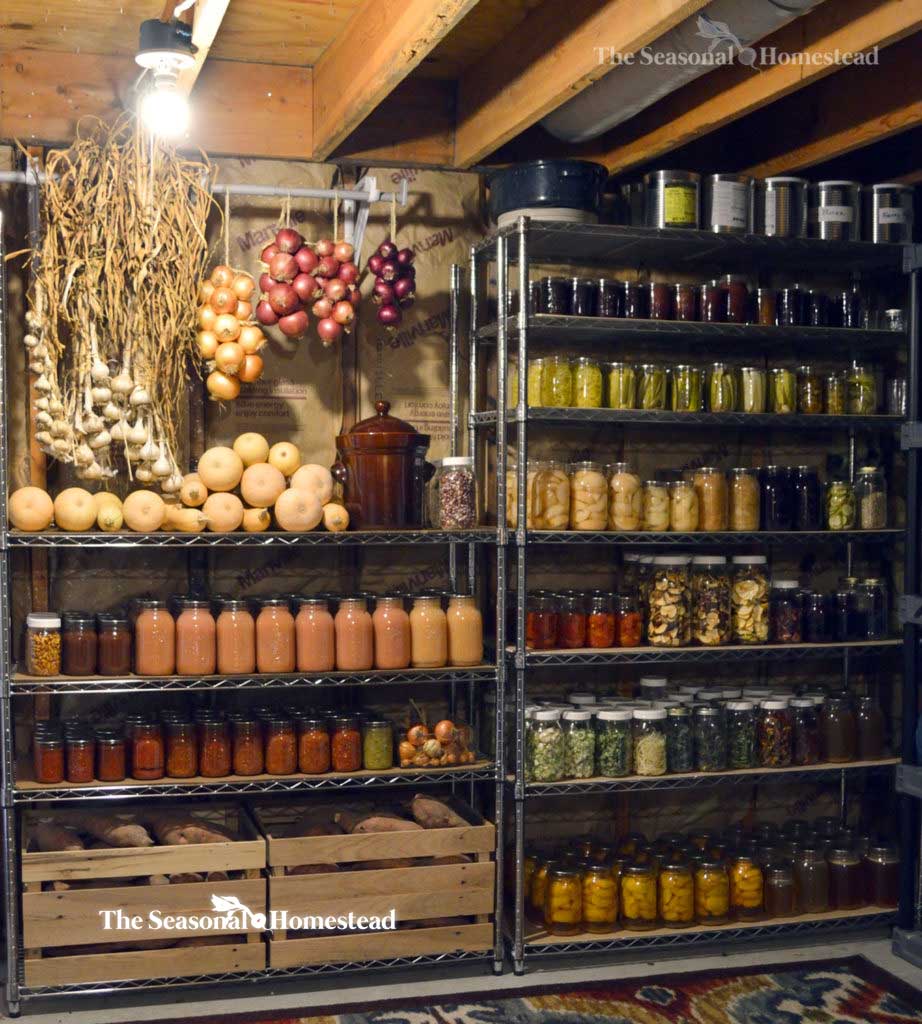
Below you will find my numbers of how much to grow per person, for each vegetable. For my family, I take the amount in the chart and times it by seven because we have seven total and my boys eat as much as I do. That is not an exaggeration. If you are counting children that eat very little you could plant half as much per person.
Obviously, the amounts will vary from person to person, family to family. If you see a vegetable on my list that your family doesn’t eat, I would increase your amounts for another vegetable. This chart gives you a great starting place to work from.
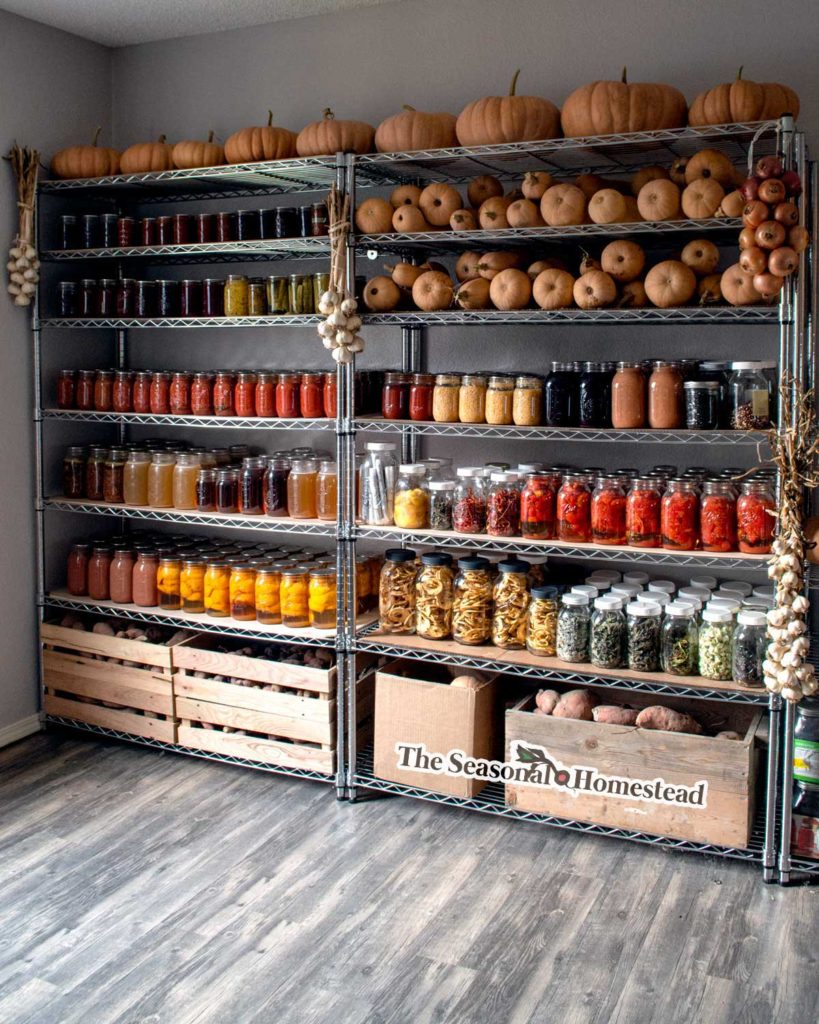
May 2020 Update: I made some tweaks to my original numbers on this chart. It was based on my experience thus far and after a particularly devastating year with my tomatoes succumbing to disease last year, I increased plant amounts needed per person to allow for any curve balls mother nature throws. Harvest amounts vary across the board and there is no way to make this exact for everyone. But I felt it was best to be more generous with the planting numbers as opposed to too conservative and perhaps unrealistic.
The amounts of plants I state below will not fit into my current 3500 square foot vegetable garden after multiplying by six like I need to. It’s a hard realization because we are so close to achieving a year supply of food. Currently I have 600 square feet of vegetable garden space per person. I would guess that about 2000 square feet of growing area per person would be more on target. Especially if you live in the north and can’t do as much succession planting.
All that said, we recently purchased 52 acres and will be starting a garden there soon. I should definitely be able to grow a full year supply of vegetables and more. I’m excited to pass along all the new things I learn to you guys! I hope you follow along with our journey.
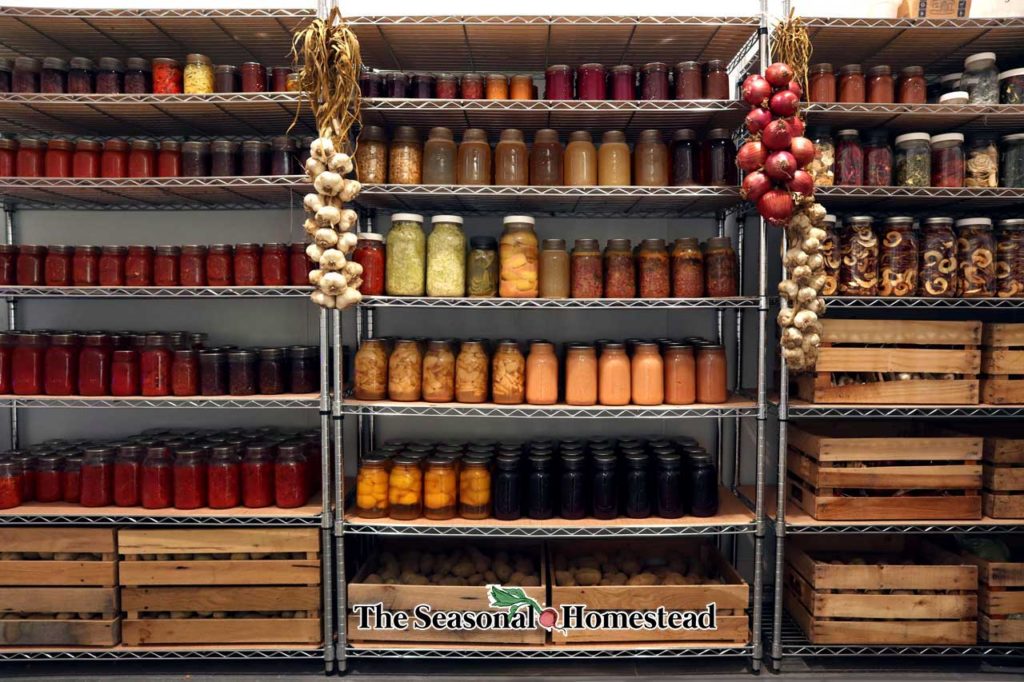
January 2022 Update: We are now on more land (wahoo!) and this year we completed our goal of a year’s supply of vegetables. What is different from year’s past is we are now have a larger garden, 12,000 square feet, and can grow all we need. I updated the numbers for the chart again this year as our experience has allowed us to dial in the numbers even more.
December 2023 Update: We have been growing all our vegetables for our now family of 7 (we had a baby since originally writing this) for four years. My boys still each a lot, if not more than in previous years. But we’ve actually decreased a few of our numbers since my garden soil is getting so rich.
This is a tried and true chart of how much to plant for a year’s supply of vegetables based on experience. It is jumping off point and as you go through each year definitely make your own notes of what you need to plant more or less.
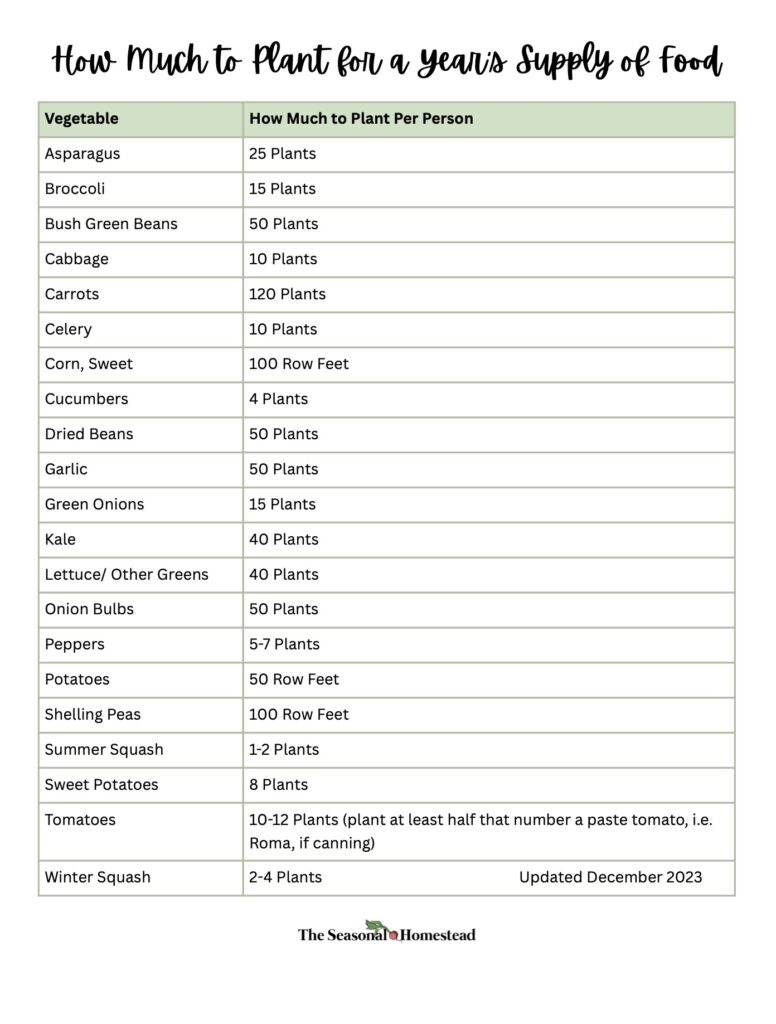
Understanding the Why- How Much to Plant for a Year’s Supply of Food
December 2023 Update Continued: I’ve had some tell me that this seems like too much per person compared to other charts they’ve seen. I will explain why.
We personally cook the majority of our food from scratch and we rarely eat out (about once a month for me and kids). Cam packs lunches for work (most of the time) and Cruz packs lunches for school. The other kids stay home with me for homeschool, and we don’t ever order in or anything like that. I think we live too far away for that anyway, haha!
So we don’t eat out much, we don’t buy frozen things or anything with a vegetable already in it from the grocery store, and we really love vegetables. We make our own salsa, canned soups, tomato sauce, spaghetti sauce, pizza sauce, pickles, etc. Preserving these things takes more vegetables than you would think!
We also occasionally have friends over for dinner. If you entertain a lot, this also adds to the amount you would need.
How to Store Your Vegetables for Winter
Spring, summer, and fall usually aren’t too bad to keep enough vegetables. When winter comes and produce stops growing (even under protected low tunnels) it can be quite a challenge.
At the beginning of this post, you can see a picture of all the canning I did. But what you don’t see its the boxes of potatoes, sweet potatoes, onions, carrots stored in the garden under mulch, dried beans, freezer vegetables, fresh kale and spinach in the garden, fermented vegetables, and dehydrated vegetables.
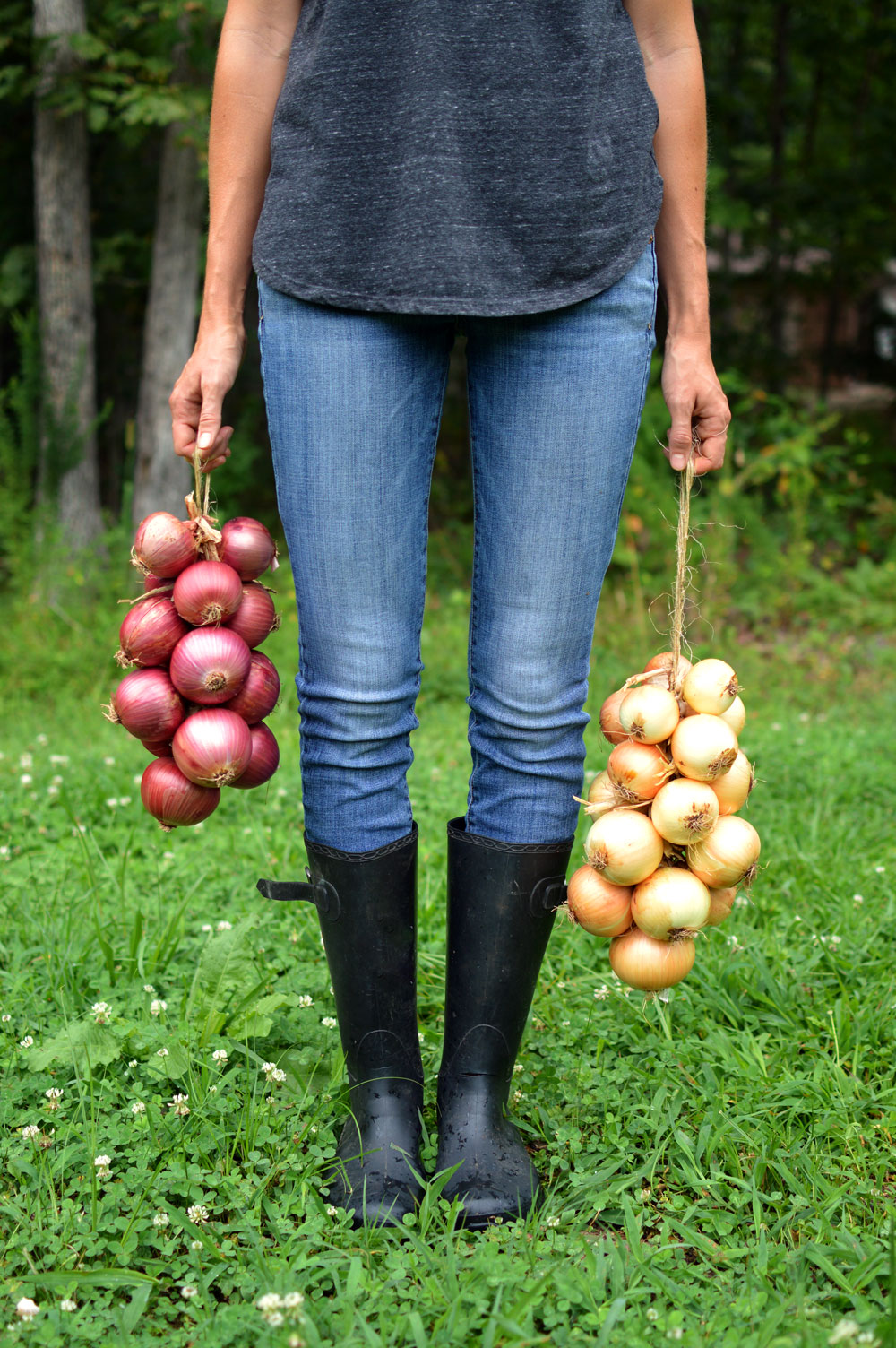
It’s important to have a wide variety of foods and preservation methods to pull from. Even though home canned food what you see pictured often, I wouldn’t rely on canned vegetables alone.
That would get old really fast and nutritionally isn’t the best. I think having a variety of vegetables from different preservation methods helps you to keep eating from the pantry and your garden produce for longer.
Update December 2023: We now have a Freeze Dryer as an additional method of preserving food. I got mine HERE. We still use all different preserving methods because we like the variety. We also recently built a high tunnel which has been the biggest game changer to having fresh food year round! If you are looking to get a greenhouse, I highly recommend reading THIS FIRST.
This post contains affiliate links. Thank you so much for your support! Full disclosure can be found here.
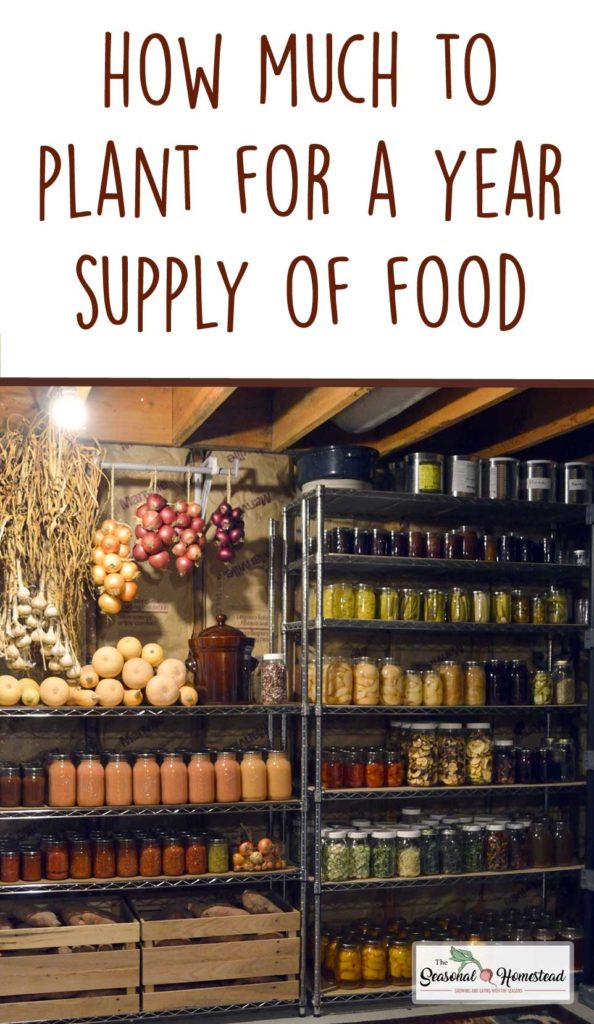

9 comments
No beets!? I love them raw in salads, pickles with cloves and cinnamon(Yum!) and cooked with butter. Good keepers. The greens are delusional as well!
Haha, no beets! I grow a few every year to try and convince myself and my family to like them. It’s not working very well 🙂
I have my list of vegetables that I am wanting to grow, one question that I have is in your chart you say “plants”, do you mean you start everything from an actual plant or is majority of everything started from seed. I am not doing nearly as big of a garden as you as it’s just me and my husband and he’s not a huge veggie person aside from carrots green beans broccoli and cauliflower.
The majority is started from seeds. I start them in trays and then transplant them.
What a wonderful job you’re doing! Would you mind telling me what zone you’re gardening in?
Thanks! I am in zone 6b.
Thank you for this!! And for the explanation in the Dec 2023 update! I’ve been reading other people’s estimates and have been doubting theirs because it doesn’t seem like enough food, but we also don’t eat out or buy any premade foods. Those details are so necessary to consider when projecting your needs for the year! This makes a lot more sense.
I am so inspired by you! This is a wonderful resource so thanks for sharing. How incredible that you do this!
Thanks!